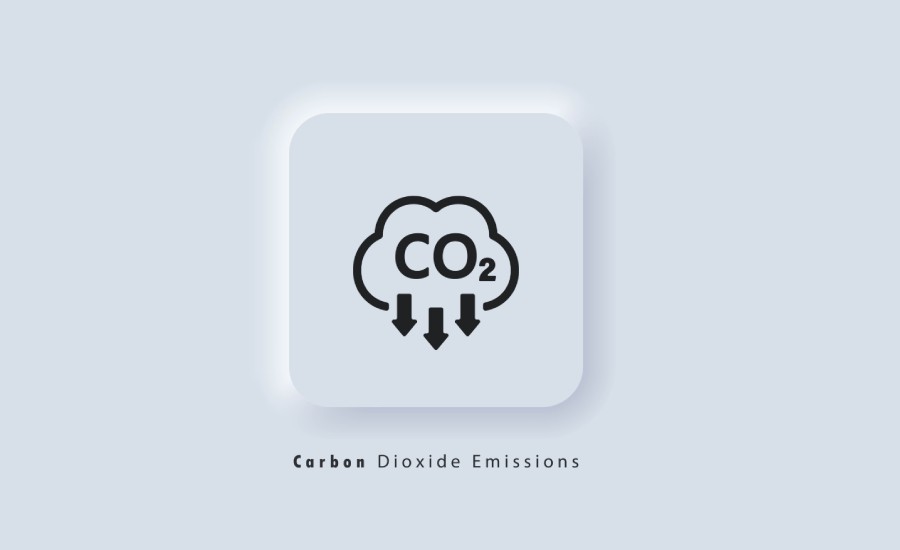Climate protection advice
Today, customers, employees, investors and credit institutions expect companies to have resilient climate protection management. Climate change has become a key concern, and public opinion and consumer buying behaviour are increasingly influenced by sustainable principles. Companies that actively reduce and transparently report their greenhouse gas emissions can gain the trust of their stakeholders and strengthen their competitiveness.
Furthermore, future legislation will increasingly oblige companies to take climate protection measures. In particular the Corporate Sustainability Reporting Directive (CSRD) of the EU, which from 2024 will come into force, will require the disclosure of greenhouse gas emissions. Companies will thus have to prepare for stricter requirements and transparency regulations.
Today, customers, employees, investors and credit institutions expect companies to have a resilient climate protection management. Greenhouse gas balances thus play a crucial role for companies to satisfy a wide range of stakeholders. Climate change has become a central concern, and public opinion and consumer buying behaviour are increasingly influenced by sustainable principles. Companies that actively reduce and transparently report their GHG emissions can gain the trust of their stakeholders and strengthen their competitiveness.
In addition, future legislation will increasingly oblige companies to take climate protection measures. In particular, the EU's CSRD (Corporate Sustainability Reporting Directive), which will come into force in 2024, will require the disclosure of greenhouse gas emissions. Companies must therefore prepare for stricter requirements and transparency regulations.
Large corporations are also seeking to incorporate their climate change requirements into their supply chain, which may also affect non-reporting suppliers. Suppliers are increasingly required to demonstrate that they are following sustainable practices and emission reduction targets in order to maintain business relationships and gain a competitive advantage.
By making timely greenhouse gas reductions, companies can continue to avoid future costs in CO₂ taxes, credits and rising energy prices. Companies that do not act proactively could face significant financial burdens. In addition to long-term financial benefits from early implementation of climate protection measures, companies can also drive innovation and position themselves as pioneers in the industry.
Feel free to contact us for more information about our services for your climate protection management. We look forward to helping you achieve your sustainability goals and make a positive contribution to climate protection.

Modular services
Base Footprint
Our base footprint includes the creation of Greenhouse gas balances taking into account the minimum emission categories recommended by us. Thereby , Scope 1, Scope 2 and Scope 3emissions, on which the company has a more direct influence, are recorded and evaluated. For most companies, Scope 3 emissions in categories 3.3 (energy-related emissions), 3.6 (business travel) and 3.7 (commuting) are indirect emissions that can be influenced by reduction measures. Here, we attach great importance to ensuring that the categories reflect the reality of your company and adapt them modularly to your requirements.
We have extensive experience in the preparation of greenhouse gas balances from a wide range of sectors and can offer tailor-made solutions with an extension of Scope 3 balancing at any time.
Our approach to Data acquisition and Calculation is deliberately specified to make the process as smooth as possible. We use an Excel-based method that makes it easy to collect the relevant data with your existing software and minimal training by our team. This produces meaningful results quickly and reliably.
Our aim is to provide a comprehensive and meaningful analysis of your emissions so that businesses can understand their environmental footprint and take appropriate action to reduce emissions.
A focus is placed here on emissions accounting in the supply chain for manufacturing companies. It is taken into account that over 80% of the total emissions often occur in the supply chain, which makes a comprehensive consideration of these emissions advisable. A first starting point is a screening of the emissions of purchased goods (Scope 3.1). With the help of an expenditure-based calculation, you can obtain a clear presentation of the emission focal points. This information can also serve as a basis for prioritising a more detailed calculation.
For a higher level of detail, we use data from your ERP system and draw on leading databases to calculate product-specific emissions from purchasing. This methodology allows us to provide a precise analysis of emissions in the supply chain.
Furthermore, we automate the recording of emissions from upstream and downstream transport (Scope 3.4 and 3.9) based on distances. This provides you with quick and efficient information on the emissions-intensive transport activities in your supply chain.
A comprehensive supplier climate strategy makes it possible to reduce greenhouse gas emissions in a supply chain. We take into account the need for specific data, especially for sectors and products where average-based data from databases is not sufficient. Monitoring emission reductions in procurement also requires specific data.
As a first step, we offer a Coaching for your procurement team to integrate climate key performance indicators (KPIs) into the supplier assessment. We help you define the right KPIs and incorporate the relevant emissions data into the procurement process.
In collaboration with Suppliers we run a Status quo analysis to determine product-specific emissions. Here, we work closely with suppliers to collect and validate the required data. To facilitate implementation, screening of emissions can identify hot spots, allowing relevant suppliers to be selected.
As part of the calculation, emissions from your suppliers are determined using supplier-specific data from Scope 1, Scope 2, purchased goods, upstream transport, and waste to calculate specific emission factors and allocate them to the purchased products.
The scope of services includes the preparation of climate targets that comply with both scientific standards and the Science Based Target Initiative (SBTi) and meet the individual climate neutrality goals of a company. We support the setting of ambitious, measurable and time-bound targets that are in line with global climate goals.
This includes calculating the reduction path for short, medium and long-term climate targets. A key component is the Monitoring compliance with targets and emissions trends in subsequent years. We ensure that companies receive regular and timely information on the progress of their climate targets. Through continuous monitoring, adjustments can be made and you will receive support to implement appropriate measures to achieve your set targets.
The implementation of the greenhouse gas reductions specified in the climate targets is initiated with the preparation of greenhouse gas reduction plans. With the help of tailor-made measures, emissions are reduced in all relevant categories and the Emission hot spots reduced. We analyse the specific emission sources and develop customised reduction strategies for your company.
Within the framework of the Reduction planning we rank measures according to feasibility, costs and reduction potential. We identify those measures that can be effectively implemented, have a positive Cost-benefit effect have and offer the greatest reduction potential. This provides you with clear and prioritised recommendations for action with a clearly arranged Prioritisation traffic light. This enables you to make informed decisions and realistic planning.
An essential component of a long-term climate strategy is the Monitoring of the implemented reduction measures in subsequent years. We track the progress of the implementation and regularly check whether the targeted reduction goals are achieved. If necessary, we adjust the strategy and support you in implementing further measures to ensure the success of your reduction plans.
In a particularly in-depth consultation and accompaniment of your company, we create transformation concepts for companies that aim to decarbonise companies and put them on a sustainable course. These transformation concepts are funded by the Federal Office of Economics and Export Control (BAFA) as part of the "Module 5: Transformation Concepts" programme.
We offer you a holistic solution by carrying out comprehensive energy audits or energy consultations to create a sound basis for drawing up the transformation concepts. Based on these audits or energy consultations, a greenhouse gas balance is drawn up, reduction targets are defined and an action plan for achieving the targets is developed. A particular advantage of this service lies in the granular data that we collect as part of the energy consultancy. This enables us to allocate emissions in detail to individual consumers in your company. This allows us to develop particularly precise measures to optimise energy consumption and reduce greenhouse gas emissions in a targeted manner.
Our experienced team works closely with you to understand the specific requirements and develop customised transformation concepts. By creating transformation concepts with energy consulting from a single source, we can realise significant synergy effects and avoid recurring efforts for data collection or agreements on reduction measures.
In doing so, we take into account your individual goals, resources and framework conditions.






